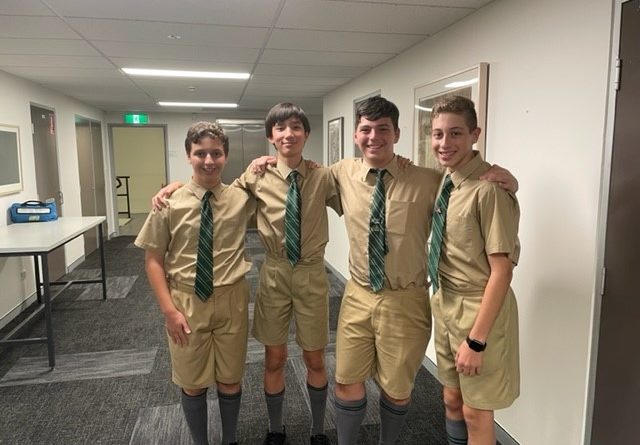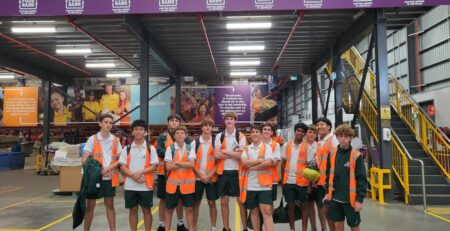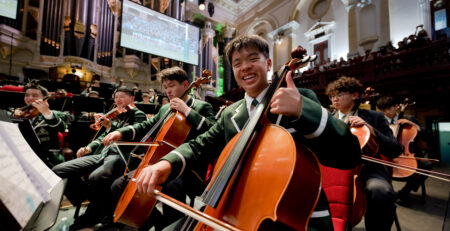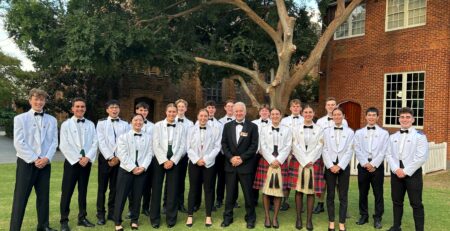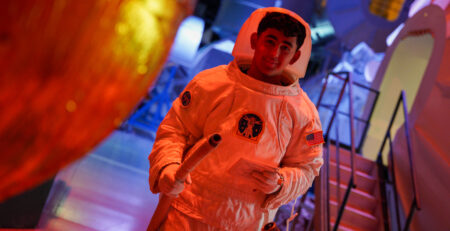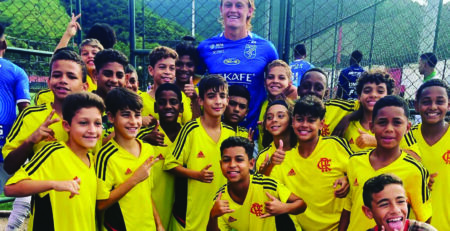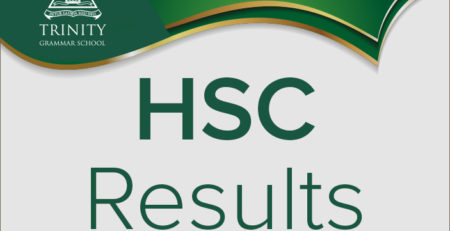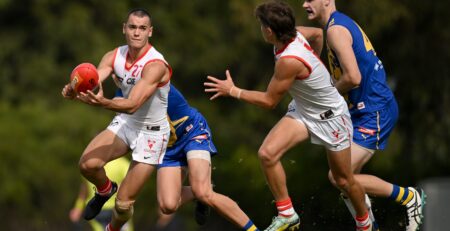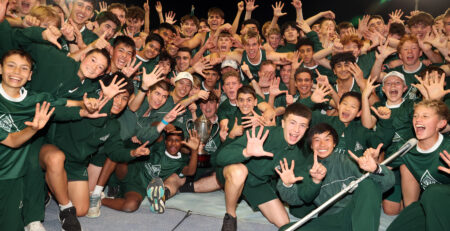Debating News | Round 5
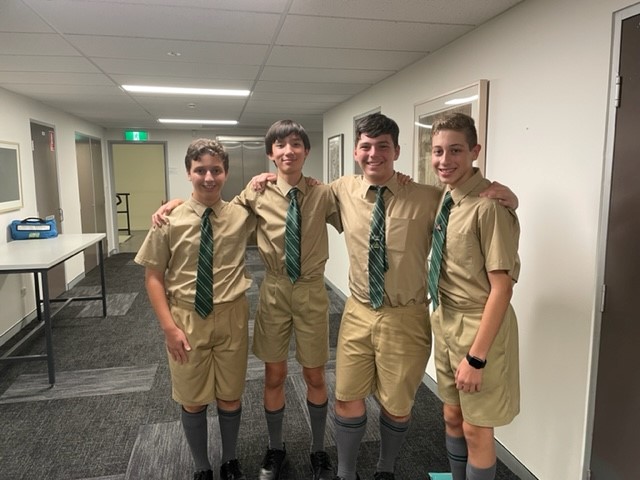
YEAR 7 FED B DEBATING REPORT
Last Friday, the FED 7B team debated against the students from Newington College. Our team consisted of A. Rabey (7 He) as the first speaker, D. Sealey (7 Sc) as the team’s second speaker, M. Licenblat (7 Du) as our third speaker, and A. Coelho (7 La) our fourth speaker visiting from the FED7As. The topic was ‘That children should not be on reality TV shows.’ Trinity was negative, so we were arguing that children should be allowed on reality shows. In the prep room we struggled to think of arguments, but we eventually settled on these points:
- Children have the right to be on a reality TV show
- Kids seeing people their age on TV will make them relate more to the content
- Seeing children on TV will make children aspire to be an actor
- Many shows need children on the show to function (e.g., MasterChef Kids)
We walked into the debate room, and we saw our opponents, Newington College. Our team performed well, but ultimately; the affirmative team had some strong points that we were unable to effectively rebut. The adjudicator gave the debate to the affirmative team, although it was a close debate. We are looking forward to debating MLC next week as an away game.
Rabey (7 He)
YEAR 7 ISDA DEBATING REPORT
On Friday, we debated against SCEGGS Darlinghurst with the topic: “That Australian citizens should be banned from visiting countries with poor human rights records”. It was our first away debate of the season, which meant we were negative. It was very exciting to be away from home for this debate, especially after a resounding victory. We spoke well and had great points and rebuttals. Overall, it was a great debate to be a part of.
De Lany (7 Hi)
YEAR 8 FED A DEBATING REPORT
Last Friday, Year 8 FED A team debated against Newington College on the topic of, “That we should publish significantly less media (TV/Movies/Books) about the end of the world or dystopias (dystopias are stories which depict life during or after the apocalypse e.g., Hunger Games)”. Whilst were all surprised to be given such a difficult topic for our age group, we approached the task with a positive mindset. After winning the toss, Trinity was given the affirmative case, and therefore, our points were orientated about the effects of dystopias on the public. A. Viswanathan (8 Ta) successfully introduced a model that solved most issues, but we could improve on it. Fortunately, the opposition had very flimsy points, which were easily counter-argued by H. Chuchra (8 He) and M. Nada (8 Sc).
By arguing about the flaws with the status quo and the effects, Trinity was able to snatch the win away from Newington. I would like to thank Mr Razza for the exceptional feedback he provides after each debate, which will help us improve furthermore. It is amazing to see how much our team has progressed, from writing full scripts to a page worth of dot points, that hits the five-minute limit. However, as he once said, “A win is a win” and the 8 FED A team is aiming to continue their winning streak onto next week’s debate at MLC.
Chuchra (8 He)
YEAR 8 ISDA DEBATING REPORT
Last week, Year 8 ISDA went to SCEGGS to debate the topic that ‘Australia should ban tourists from visiting countries with bad human rights track records.’ Since we were the away side, we were the Negative team. The opposition’s first speaker came out strongly, talking about how tourism helps dictatorships and how this ban would be like the covid system with small exemptions. Then our first speaker A. Yee (8 Ta) came back, arguing about the freedom of choice and the right to travel. Also saying that this system would be riddled with flaws. SCEGGS continued with this idea of how we would be hurting these regimes. Our second speaker J. Arnold (8 Ar) went out saying how it disproportionately affects Australians who are a part of minority groups. He also talked about how the plan could be deemed as racist and could cause negative backlash. As third speaker, I had to seriously damage the integrity of their case. I pointed out how they had no mechanism to decide what counted as a country with a bad human rights record and how this could slippery slope into a catastrophe where any country is banned. E. Eswaran (8 We) wrote some good rebuttal and made polite closing remarks. Overall, we put up a good fight but lost.
B.Ashcroft (8 Fo)
YEAR 9 ISDA DEBATING REPORT
Last Friday, the year 9 ISDA debating Team consisting of M. Padmore (9Mu) as first speaker, E. Ciarroni (9WJ) as second, C. Ciarroni (9WJ) as third, and D. Lok (9Ke) as fourth speaker had a strong victory against SCEGGS and was our best debate of the season. The topic was “That international sporting events should never be held in low-income countries”, with Trinity as the negative team, arguing against the proposed change. SCEGGS came out strongly with some valid points about how it has a major financial impact on low-income countries and that they are currently unable to pay off the debt that is required to provide high quality sporting facilities. These points were quickly negated by all speakers on our team, along with the support of a well thought-out counter-model that was consistent throughout all speakers. Our model proposed that the cost to facilitate international sporting events would be paid by the countries that have a higher income, and if they refused to pay, then they would not be able to compete. This ensured that there would not be any financial impacts on these low-income countries. With little response from the opposition, Trinity was able to take home a clear win. To quote our coach, “It was a flawless debate, with a flawless counter-model.” Let’s hope the team can continue performing well for the rest of the season.
Thank you to our coach, Miss Cummins for her continued support of our team throughout the season.
Ciarroni (9W-J)

